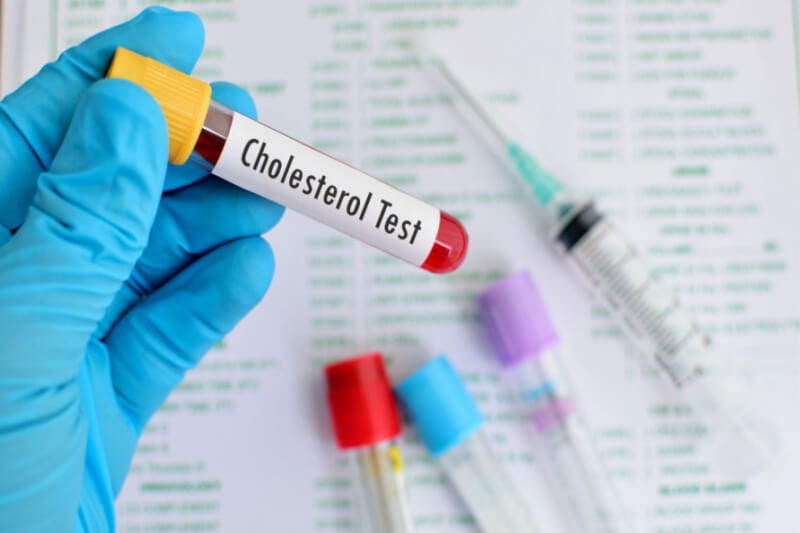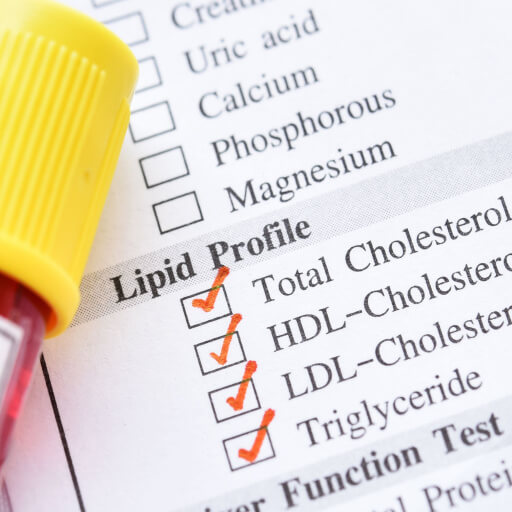If you want to improve your health, you need to know exactly how it is right now and what it should be. This will help create a road map and provide a clear direction on how to get there.
For example, your body needs cholesterol to build healthy cells. However, high levels of bad cholesterol can increase the risk of heart disease.
How to calculate cholesterol readings?

A cholesterol test keeps your cholesterol levels in check by determining the buildup of fatty deposits (plaques) in your arteries. The cholesterol content in your blood is measured using a blood test. You can calculate your cholesterol readings on our online Total Cholesterol Calculator. This calculator uses four values to derive concrete results: total cholesterol, high-density lipoprotein-cholesterol, low-density lipoprotein–cholesterol, and triglycerides. Some tests also take into consideration your age, gender, ethnicity, and your cholesterol levels. To ensure the results are accurate, avoid strenuous activities before taking the test, fast for at least 9-12 hours, and inform your doctor about any persisting medical conditions. Every person above the age of 20 years must try and measure their cholesterol levels at least once every 5 years.
4 types of fats
A cholesterol test measures 4 types of fats in the blood:
Total cholesterol level in the blood: Total cholesterol is a combination of low-density lipoprotein and high-density lipoprotein. An optimal cholesterol score should be 200 mg/dl or lower.
Low-density lipoprotein cholesterol: Also known as bad cholesterol, it deposits on the walls of blood vessels. This clogging of arteries can pose a threat to the coronary arteries, ultimately resulting in a heart attack or other heart diseases. The optimal level of LDL cholesterol is 100 mg/dl. People with heart diseases may strive for LDL levels of 70 mg/dl or lower.
High-density lipoprotein cholesterol: Also known as, good cholesterol, HDL cholesterol prevents the buildup of LDL cholesterol. HDL levels of 60 mg/dl and higher can reduce the risk of heart disease.
Triglycerides: Triglycerides are the most common type of fat in the blood. Normal triglyceride levels stand at 150 mg/dl or lower. Levels higher than this can lead to metabolic syndrome or heart attacks.
Why measure your cholesterol?
A cholesterol test serves as a health tool to assess the risk of cardiovascular complications, which may include a heart attack or stroke. Untreated cholesterol can lead to plaque accumulating in the arteries. This narrows the passageway and slows the blood flow to the heart. If the blood supply to any part of the heart is blocked, it can result in a heart attack.
It is essential to get frequently tested, especially if you have cardiovascular problems, high blood pressure, obesity, diabetes, or a family with a medical history of cholesterol.
What is familial hypercholesterolemia?

Familial hypercholesterolemia is a genetic disorder wherein cholesterol builds up along the walls of your arteries and veins since childhood, increasing the risk of heart attacks or strokes at an early age. The formation of lumps under your skin known as xanthomas can help detect cardiovascular problems. These fatty deposits are noticeable around the tendons in the hands, knees, elbows, Achilles tendons, and around the iris of the eyes. Chest pain or other signs of coronary artery disease may also be present at a younger age.
Adopt a healthy standard of life and measure your cholesterol levels frequently to keep your heart healthy.
Key Takeaways
- A cholesterol test helps monitor your cholesterol levels by assessing the buildup of fatty deposits (plaques) in your arteries.
- Total cholesterol consists of a combination of low-density lipoprotein (LDL) and high-density lipoprotein (HDL).
- Familial hypercholesterolemia is a genetic disorder that causes cholesterol to accumulate in the walls of your arteries and veins starting from childhood, which significantly increases the risk of heart attacks or strokes at an early age.
Get more information on fitness and nutrition by actively participating in the Activ Living Community.





 1800-270-7000
1800-270-7000








